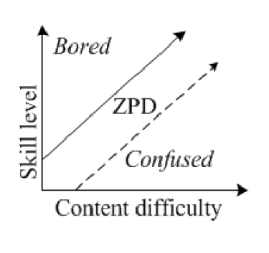1. Socio-Cognitive Support for PwD
Background
A person with dementia, further called the subject in accordance with our ontology, generally forgets information about their relatives and other close persons in their environment. It has been reported that a subject can feel anxious when querying their relatives for information and have a sense of overreliance on those around them [1][2] .
The subject expresses this reliance through the repetitive need need to ask for information about others in their environment. This burden, as perceived by the subject themselves, can lead to feelings of disconnectedness, separation, and loneliness.
According to the self-determination theory a subject benefits from autonomy, connectedness, and competence in order to improve their motivation for engagement with activities [3]. [4] expanded on the connectedness and determined that connectedness is to self, to others, and the environment is important for participating in activities. In others words, in order for the subject to actively maintain relationships and engage with their relatives through social contact, the three named factors must be stimulated.
Socio-Cognitive Support
The task of increasing autonomy in a subject can consist of remembering information about relatives without having to prompt the relatives in question. According to Vygotsky [6] interacting with another entity through knowledge exchange contributes to knowledge creation. So in order to realize this task we develop the NAO with the functionality of a personal encyclopedia, containing information on relatives and other loved ones. The subject is then able to consult this encyclopedia verbally.
This solution requires at least some retention of information, and as the cognition of the subject depends on the progression of the dementia [5], it will be limited to those with early-stage dementia.
There are some important values to be considered in the development of the above solution. From the basic human values given by Schwartz [7], we can for example take self-direction, as a subject might want to experience more (intellectual/emotional) freedom, but also security, as the subject wants to remain in the social order they are used to.
Another principal value is the balance between complete information given by the encyclopedia and the emotional response, both positive and negative, the given information elicits. The Zones of Proximal Development (ZPD) [6], can be extended to provide a guide in establishing this balance.
As shown, the ZPD gives a ratio between skill level and content difficulty in which a child can learn from information. If we extend this to a subject with dementia, we could similarly compare mental state and information completeness. I.e. there is a range of acceptable information to provide to the subject, given their mental state (eg. dementia progression, emotion level). If we were to supply the subject with more information than they could handle in small periods of time (dependent on their dementia progression) it could cause the subject to become frustrated or distressed.

References
[1] Eriksen S, Helvik AS, Juvet LK, Skovdahl K, Førsund LH, Grov EK. The Experience of Relations in Persons with Dementia: A Systematic Meta-Synthesis. Dement Geriatr Cogn Disord. 2016;42(5-6):342-368. doi: 10.1159/000452404. Epub 2016 Nov 19. PMID: 27866199.
[2] Han A, Radel J, McDowd JM, Sabata D. Perspectives of People with Dementia About Meaningful Activities: A Synthesis. Am J Alzheimers Dis Other Demen. 2016 Mar;31(2):115-23. doi: 10.1177/1533317515598857. PMID: 26340962.
[3] Ryan, R. M., & Deci, E. L. (2000). Self-determination theory and the facilitation of intrinsic motivation, social development, and well-being. American psychologist, 55(1), 68.
[4] Areum Han, Jeff Radel, Joan M. McDowd, Dory Sabata (2016). Perspectives of People with Dementia
About Meaningful Activities: A Synthesis
[5] (Week 3.1b -PwDcognitonMusic_Schaefer2023, slide 4)
[6] Vygotsky’s (1896–1934) theory (“an inherent social nature of learning”)
[7] Basic Human Values Schwartz, S. H. (2012). An overview of the Schwartz theory of basic values. Online readings in Psychology and Culture, 2(1), 11.
